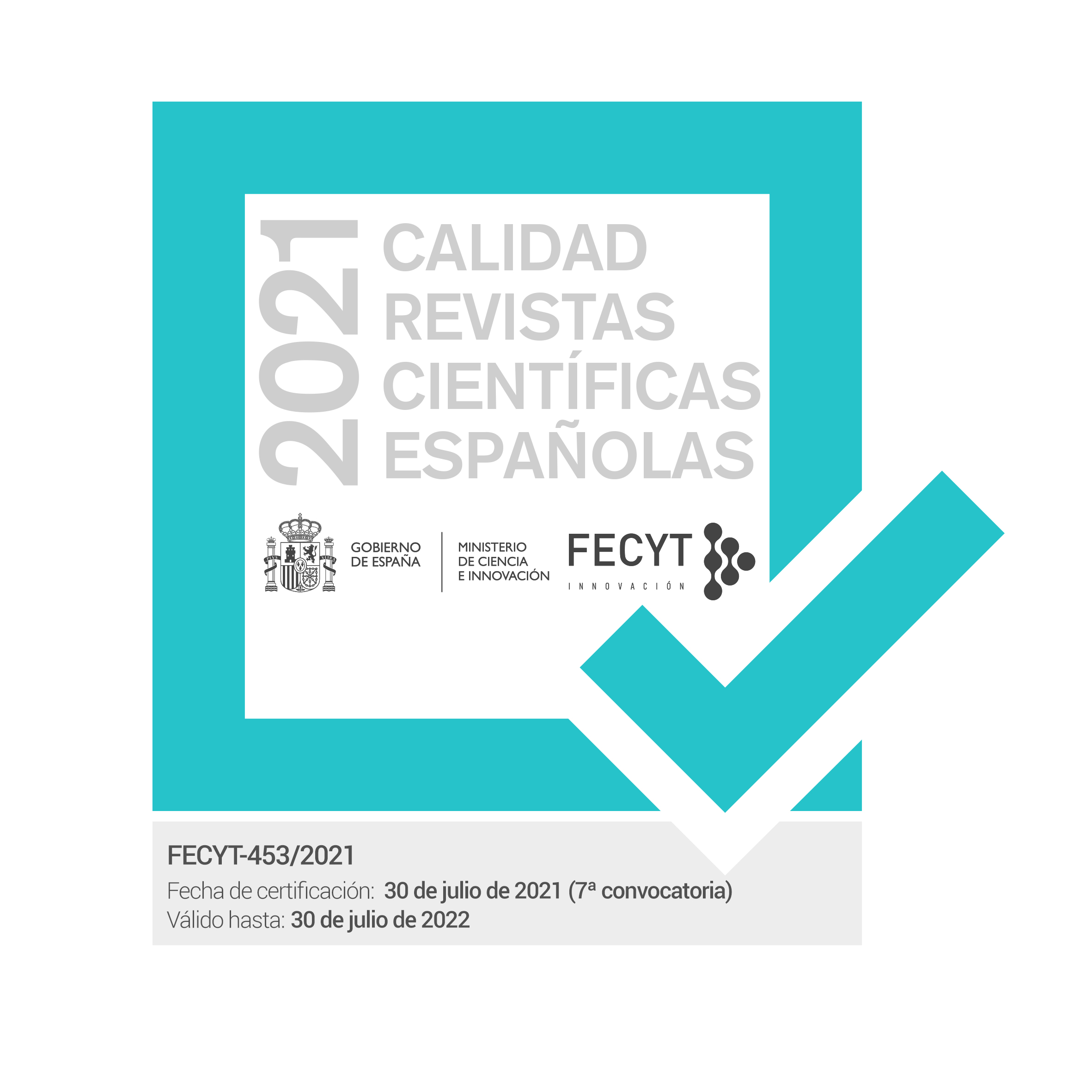A forgotten lecture given by Pío Baroja in 1933 in the context of his narrative work that year and the year before
DOI:
https://doi.org/10.18172/cif.3618Keywords:
Pío Baroja, Los visionarios, lecture at the Ateneo, communismAbstract
This work, which could be named “an episode in Pío Baroja as an anti-communist”, aims to revive his forgotten speech at el Ateneo, Madrid, February, 5th, 1933. Since his lecture talked about his novel Los visionarios, 1932, it has been thought appropriate to establish before some sections related to the consideration of that novel.
Not only the novel, but the notes read by Baroja as well at el Ateneo, were inspired by the strong events and ideologies that years, among them and mainly the communism itself. His disagreement with it, implicit in the novel and explicit in his said activity at The Docta Casa, gave him such a disagreeable experience that he would never forget it, as it will be here shown. Considering the main sources of this study can be said that they are based specially on the author’s works themselves and on the Spanish Press in the early thirties of the past century.Downloads
References
ANCOS MORALES, B. de (1998). Pío Baroja: Literatura y periodismo en su obra. Madrid: Fundación Universitaria española.
BAROJA, P. (1998-1999). Obras completas, vol. XIV, t. II, y vol. XVI. Barcelona: Círculo de Lectores.
BAROJA, P. (1974). La familia de Errotacho. Madrid: Caro Raggio.
BAROJA, P. (1974). El cabo de las tormentas. Madrid: Caro Raggio.
BAROJA, P. (1974). Los visionarios. Madrid: Caro Raggio.
BAROJA, P. (1982). El escritor según él y según los críticos. Madrid: Caro Raggio.
BAROJA, P. (1983a). La intuición y el estilo. Madrid: Caro Raggio.
BAROJA, P. (1983b). Galería de tipos de la época. Madrid: Caro Raggio.
BAROJA, P. (1998). Aquí París. Madrid: Caro Raggio.
BAROJA, P. (1999). Desde el exilio. Madrid: Caro Raggio.
BAROJA, P. (2006). Desde la última vuelta del camino, III. Memorias. Barcelona: Tusquets.
BAROJA, P. (2014). Corresponsalía de guerra y otros textos olvidados. Madrid: Caro Raggio.
CARO BAROJA, P. (1987). Guía de Pío Baroja. El mundo barojiano. Madrid: Cátedra: Caro Raggio.
CINTAS GUILLÉN, M. I. (2001). “Introducción” a Obras completas, tomo I, Manuel Chaves Nogales. Sevilla: Diputación de Sevilla.
ENTRAMBASAGUAS, J. de (1961). Las mejores novelas contemporáneas, tomo VIII (1930-1934). Barcelona: Planeta.
FUSTER GARCÍA, F. (2011). “Yo intelectual. Pío Baroja frente a las masas y la democracia”. Arbor 190, febrero: 1-9.
GARCÍA DE JUAN, M. Á. (2003). “Las novelas cortas de Pío Baroja”. Revista de Lengua y Literatura españolas. Actas del VIII simposio sobre Experiencias Didácticas: 69-80.
GARCÍA DE JUAN, M. Á. (2015). “Última gavilla de textos desconocidos de Pío Baroja”. Boletín de la Real Sociedad Bascongada de los Amigos del País LXXI (1-2): 411-446.
GARRIDO DOMÍNGUEZ, A. (1993). El texto narrativo. Madrid: Síntesis.
GONZÁLEZ LÓPEZ, E. (1971). El arte narrativo de Pío Baroja: Las trilogías. Nueva York: Las Américas.
GUTIÉRREZ MOLINA, J. L. (2002). “Andalucía y el anarquismo (1868-1936)”. Ayer 45: 171-195.
HURTADO, J. y GONZÁLEZ PALENCIA, A. (1949). Historia de la literatura española. Madrid: Saeta.
MAINER, J.-C. (2012). Pío Baroja. Madrid: Taurus.
MARRACO VERA, J. M. (2000). Socialismo, República y Revolución andaluza. Sevilla: Universidad de Sevilla.
NAVARRA ORDOÑO, A. (2013). “Pistolas, carnavales y pronunciamientos: Baroja y las rebeliones sociales de los años veinte y treinta: El cabo de las tormentas”. Sancho el Sabio 36: 47-60.
NORA, E. de (1973). La novela española contemporánea (1898-1967), I. Madrid: Gredos.
PÉREZ CUBILLO, J. (2016). Pío Baroja y sus temas andaluces. Córdoba.
SÁNCHEZ-OSTIZ, M. (2006). Pío Baroja, a escena. Madrid: Espasa Calpe.
SANTONJA, G. (1985). “Pío Baroja frente a la llamada crítica de masas”. Liberación. 10 de marzo, p. 20.
SAZ PARKINSON, C. A. (2011). Positivamente negativo: Pío Baroja ensayista. Madrid: Editorial Complutense.
VALBUENA PRAT, Á. (1946). Historia de la literatura española, vol. II. Barcelona: Gustavo Gili.
Downloads
Published
How to Cite
Issue
Section
License
The authors retain copyright of articles and authorize CIF the first publication. They are free to share and redistribute the article without obtaining permission from the publisher as long as they give appropriate credit to the editor and the journal.
Self-archiving is allowed too. In fact, it is recommendable to deposit a PDF version of the paper in academic and/or institutional repositories.
It is recommended to include the DOI number.
This journal is licensed under a Creative Commons Attribution 4.0 International License








